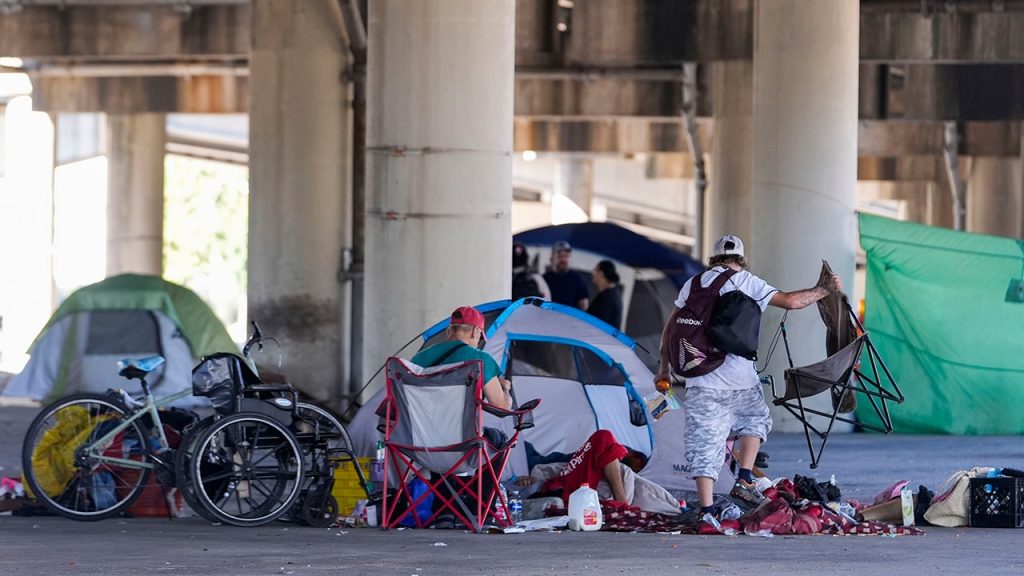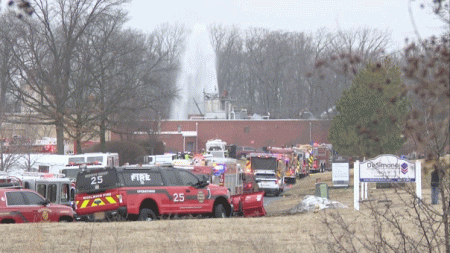The tragic triple homicide at a Louisiana homeless encampment underscores the escalating dangers these communities pose, not just to their residents, but also to the surrounding neighborhoods. The incident, allegedly sparked by a stolen bicycle, resulted in the deaths of three individuals found shot multiple times in a secluded campsite. This case highlights the growing national concern surrounding crime within homeless encampments, a problem exacerbated by the 18.1% increase in homelessness witnessed in 2024, largely attributed to a confluence of factors including a surge in asylum seekers, scarcity of affordable housing, and the devastating impact of natural disasters. These encampments become breeding grounds for criminal activity, often lacking adequate security and oversight, leaving residents vulnerable and posing a threat to the wider community.
The Louisiana case exemplifies the complex interplay of factors contributing to violence within these settings. The alleged perpetrator, Noel Marine, had a history of drug-related convictions and was wanted for a prior theft at the time of the murders. The victims, two of whom resided in the encampment and one from a nearby home, were known to associate with Marine. The campsite, hidden from public view, became the scene of this horrific crime, with the discovery of the bodies prompting an investigation that quickly focused on Marine due to his fingerprint found at the scene. His inconsistent alibi and subsequent confession to a friend ultimately led to his arrest. This case reveals the vulnerability of individuals within these encampments, often preyed upon by those with criminal histories seeking refuge in these unregulated spaces.
The unchecked growth of homeless encampments creates a precarious environment, where the lack of regulation and security fosters a climate of lawlessness. The secluded nature of these sites, often hidden from public view, allows criminal activities to thrive, shielded from the scrutiny of law enforcement. The absence of basic amenities, such as sanitation and proper lighting, further exacerbates the risks, creating a breeding ground for disease and violence. This lack of oversight not only endangers the inhabitants but also exposes the surrounding communities to potential spillover effects, including increased crime rates and a diminished sense of safety. The Jefferson Parish case serves as a stark reminder of the dire consequences of neglecting the complex needs of homeless populations and failing to address the underlying issues that contribute to the formation and persistence of these encampments.
Experts argue that city leaders have a responsibility to address the escalating dangers posed by unregulated homeless encampments. Mark Powell, a former reserve police officer and school board member who oversaw a school for homeless youth, emphasizes the obligation of city officials to dismantle these camps and provide residents with alternative shelter options. He stresses the importance of regular monitoring, security presence, and sanitation measures to mitigate the risks associated with these communities. The Louisiana case demonstrates the potential for violence to erupt in these uncontrolled environments, highlighting the need for proactive intervention and support services to protect both the inhabitants and the surrounding population.
Powell further argues that the absence of regular security and sanitation within these encampments creates a dangerous environment not just for residents, but also for the broader community. The lack of oversight allows criminal activity to flourish, potentially impacting surrounding neighborhoods. This includes the risk of individuals from the surrounding area becoming victims of crime when encountering encampments. The fear of encountering such situations can also lead to community members avoiding public spaces, further isolating the homeless population and perpetuating negative stereotypes. This reinforces the need for comprehensive strategies that address both the safety concerns and the underlying causes of homelessness.
Ultimately, the Louisiana triple homicide serves as a chilling reminder of the urgent need for comprehensive strategies to address the complexities of homelessness. While providing shelter and support services is crucial, ensuring the safety and security of both encampment residents and the surrounding community is equally paramount. The lack of regulation and oversight in these communities creates a fertile ground for violence and criminal activity, jeopardizing the lives of vulnerable individuals and impacting the well-being of the broader population. The incident underscores the need for a multi-pronged approach that combines compassionate outreach with effective security measures to create a safe and sustainable environment for all.











